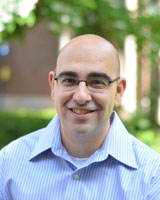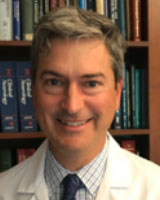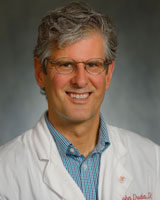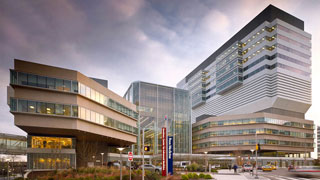University of Pennsylvania in Philadelphia, PA
The Research Center of Excellence is composed of three main cores that currently provide comprehensive clinical care for patients with DLB: the Penn cognitive clinic at the Penn Frontotemporal Degeneration Center (FTDC), the Penn Parkinson’s Disease and Movement Disorder Center (PDMDC), and the Parkinson’s Disease Research, Education and Clinical Centers (PADRECC).
The FTDC is the largest young-onset dementia center on the east coast and is an internationally recognized leader in this area; the center is also active in recruitment in PDD/DLB patients for the PENN UDALL and DLB Consortium. The 30-member staff includes experienced physicians, clinical nurses, genetic counselors, neuropsychologists, researchers, and research coordinators.
The PDMDC is the largest movement disorder center in the Philadelphia region and provides care for over 2,000 patients with LBD and related disorders. The staff at the PDMDC consists of 10 full-time Movement Disorders specialists, two clinical nurses, eight research assistants, and two social workers as well as support personnel. The staff at the PDMDC facilitates a network of support groups across the Delaware Valley region and conducts regular educational events for patients and caregivers, local physicians, and trainees. There are support groups dedicated to the Chinese speaking community in Philadelphia’s Chinatown and the African American community throughout the City. There is a free counseling program staffed by licensed psychologists who are experts in the needs of patients with Lewy Body Disorders. The Dan Aaron Center Parkinson Rehabilitation Center is housed in PDMDC and is staffed by six PT/OT/Speech specialists to provide state-of-the-art physical, occupational and speech therapy, thus completing the comprehensive care model at the PDMDC.
PADRECC was funded in 2001 as one of six Centers funded by the Department of Veterans Affairs to provide state-of-the-art care for thousands of Veterans with PD and related disorders. The PADRECC is a comprehensive multi-disciplinary clinic with a neuropsychologist, a geriatric psychiatrist, and a social worker to help care for Veterans with LBD.
Clinic name: Penn Neuroscience Center
Phone number: 215-662-3606
Website: Penn Frontotemporal Degeneration Center
Parkinson’s Disease and Movement Disorders Center
Udall Center for Parkinson’s Research
Parkinson’s Disease Research, Education and Clinical Centers
David Irwin, MD
Dr. Irwin is an Assistant Professor in the Cognitive Division of the Department of Neurology at the PENN FTDC of the University of Pennsylvania. He is a cognitive neurologist who evaluates and treats patients with a range of neurodegenerative conditions with a specific interest in DLB. He has an active translational research program and is a co-investigator in Penn’s Udall Center investigating clinical and pathological facets of DLB. Dr. Irwin is involved in several areas of patient outreach and education. He is a visiting lecturer at local support groups for the Alzheimer’s Association and Association for Frontotemporal Dementias (AFTD). He is a newly elected member of the LBDA scientific advisory board and leads the PENN site for the DLB Consortium.

Andrew Siderowf, MD
Dr. Siderowf is the Director of the PENN PDMDC and Chief of the PENN Neurology Division of Movement Disorders. He is a member of the LBDA Scientific Advisory Board. He has extensive experience in the diagnosis and clinical management of patients with Lewy Body disorders. He completed a fellowship in Movement Disorders and Experimental Therapeutics at the University of Rochester. He was subsequently on the faculty at UPENN for 15 years.

John Duda, MD
Dr. Duda is an Associate Professor of Neurology at the Perelman School of Medicine at the University of Pennsylvania. His research activities include basic science investigations into the role of Lewy pathology in the pathophysiology of Parkinson’s disease and related disorders as well as investigations into the mechanisms involved in the development of chronic traumatic encephalopathy.


